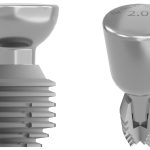The implications of insufficient sleep on dental health are underscored by a fresh investigation featured in BMC Oral Health’s latest publication.
Dental caries, a persistent global malady, persists despite robust dental public health endeavors. Emerging as a potential risk factor, inadequate sleep duration has been associated with various medical conditions. This study sets out to dissect the intricate correlation between sleep duration and dental caries.
Data sourced from the 2017-2018 cycle of the National Health and Nutrition Examination Survey, a comprehensive health study encompassing the United States, were collated. Respondents who dutifully completed sleep questionnaires underwent rigorous dental evaluations adhering to standardized clinical criteria. This scrutiny was confined to participants aged 16 and above, possessing comprehensive oral examination records alongside completed sleep questionnaires (N = 5,205). The data were meticulously weighted to extrapolate national estimates, with a multitude of potential confounding factors integrated into the analysis to navigate the intricacies of the sample design. The study’s primary focal points encompass untreated dental caries and the broader spectrum of dental caries experiences. Leading variables in this inquiry comprised the mean nightly sleep hours and a binary parameter delineating the threshold at 7 hours per night. Employing a series of weighted Poisson and logistic regression analyses, we sought to substantiate the hypothesis positing that individuals with abbreviated sleep durations are predisposed to a heightened likelihood of experiencing dental caries.
Findings
The empirical analysis revealed a statistically substantial inverse correlation between sleep duration and dental caries across the spectrum of meticulously adjusted analyses. A mere one-hour elongation in average nightly sleep hours corresponded with an Adjusted Odds Ratio (AOR) suggesting a potential 0.86 decrement in the likelihood of encountering dental caries experiences (AOR = 0.86, 95% CI = 0.75–0.98, P < 0.05). Notably, individuals who reported achieving a nightly sleep duration of at least 7 hours exhibited a diminished susceptibility to dental caries experiences, in comparison to those who reported less than 7 hours of sleep (AOR = 0.52, 95% CI = 0.33–0.82, P < 0.05). Extending this analysis, an augmentation of one hour in average sleep hours corresponded to an Adjusted Mean Ratio (AMR) of approximately 0.97, signifying a potential decrease in the likelihood of dental caries experiences (AMR = 0.97, 95% CI = 0.96–0.99, P < 0.05). Intriguingly, this effect was even more pronounced among those reporting at least 7 hours of sleep per night, compared to those with fewer than 7 hours (AMR = 0.92, 95% CI = 0.87–0.99, P < 0.05).





